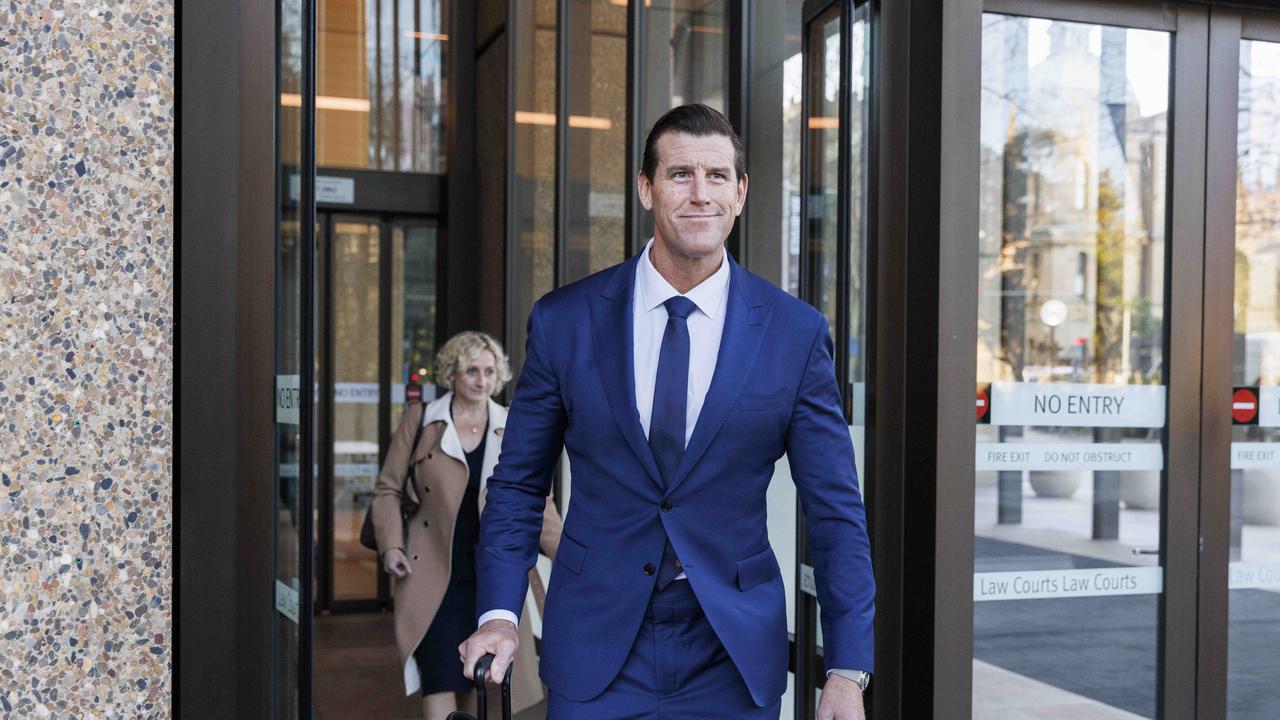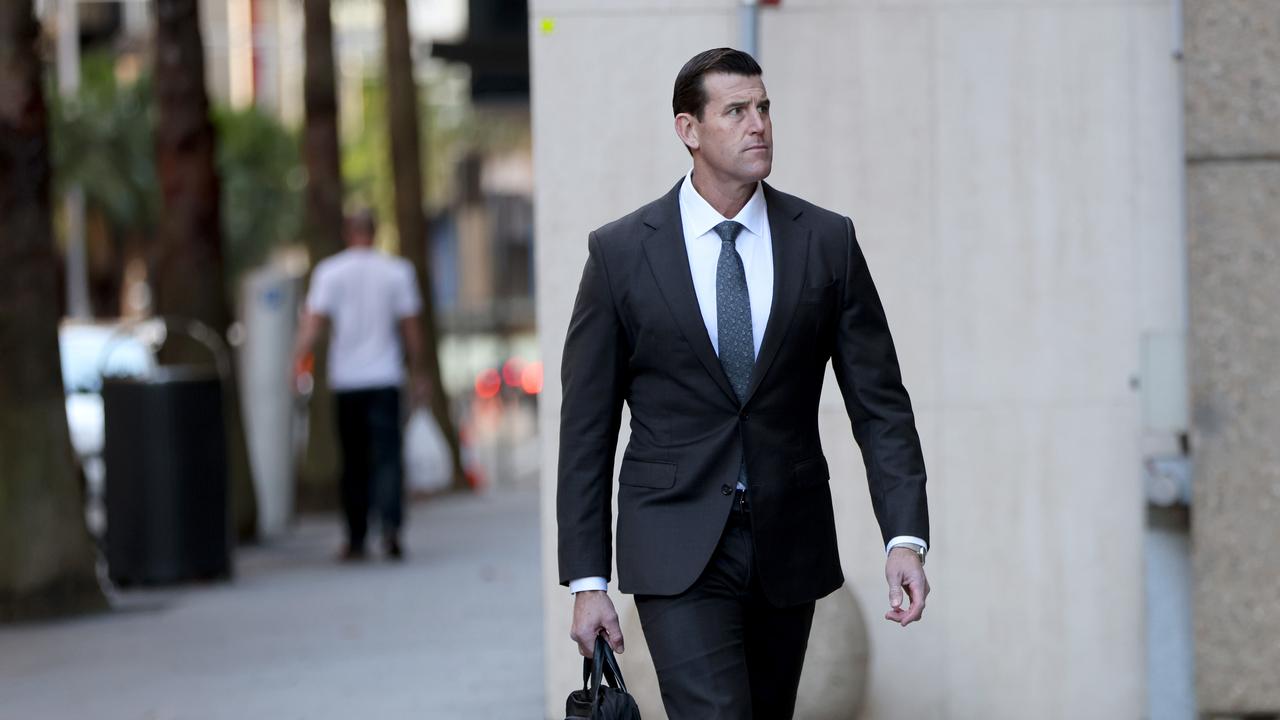War crime investigator given access to restricted documents in soldier’s failed defamation proceedings
The investigator into alleged war crimes is allowed to access restricted documents from Ben Roberts-Smith’s failed defamation trial.
The Australian Federal Police and war crimes investigators will have access to restricted documents in Ben Roberts-Smith’s failed defamation case as the soldier is investigated over allegations he broke the rules of engagement in Afghanistan.
Earlier this year, Federal Court Justice Anthony Besanko ruled some of the imputations against Mr Roberts-Smith put forward across six articles by The Sydney Morning Herald, The Age and The Canberra Times were substantially true and dismissed the case.
The newspapers had accused Mr Roberts-Smith of war crimes, with the case expected to have cost more than $25m in legal fees.
The Commonwealth has remained involved in the case throughout, with extensive special orders made by the Federal Court in 2020 to protect national security information.
After the trial ended, the Commonwealth applied for changes to the order to enable the AFP and the Office of the Special Investigator (OSI) to have access to sensitive court documents.

The court was previously told the OSI is “currently conducting a number of joint investigations with the AFP into the alleged commission of criminal offences” related to breaches by members of the Defence Force in Afghanistan from 2005 to 2016.
The joint investigations, collectively known as Operation Emerald, consist of 33 probes. Mr Roberts-Smith consistently denies any wrongdoing.
In court documents, OSI director of investigations Ross Barnett said there was an “overlap” between the subject matter of the investigations and the subject matter of defamation proceedings.
The Commonwealth initially sought access to all sensitive court documents used throughout the proceedings but later limited the request following a hearing in front of Justice Robert Bromwich on September 11.
Justice Bromwich on Monday made orders to allow the OSI to view a range of transcripts and evidence from the soldier’s lengthy litigation.
However, the OSI will not be allowed to see certain material from the case such as transcripts from when Mr Roberts-Smith and others gave evidence during closed court proceedings.
Redactions will be made to transcripts from closed-court sessions, evidence tendered to the court and material on a secure laptop from the trial.
Arthur Moses SC, representing Mr Roberts-Smith, told the court the OSI would have unlawfully obtained sensitive material that could have potentially “contaminated” the investigation.

“It could have contaminated a criminal investigation because of the unlawful access to material … that’s our position,” Mr Moses said on Wednesday.
“This is an individual having to be put to the expense of having to deal with something that never should have happened in the first place … if they had access to what they wanted to access, there could have been the corruption of yet another investigation.”
Justice Bromwich said it was “openly acknowledged” that Mr Roberts-Smith was the subject of an investigation.
He told the court: “No one knows where that is going to end up.”
Redactions to the documents will be made by lawyers at the Australian government solicitor and reviewed by special counsel before it is given to the OSI.
Mr Moses made an application to have legal costs paid for regarding the application for access after concerns were raised in June about the potential of contamination.
Justice Bromwich ruled in favour of the soldier, ordering the Commonwealth pay Mr Roberts-Smith’s costs in the necessary application.
Mr Roberts-Smith has launched an appeal of Justice Besanko’s decision that will be heard over two weeks in February.



